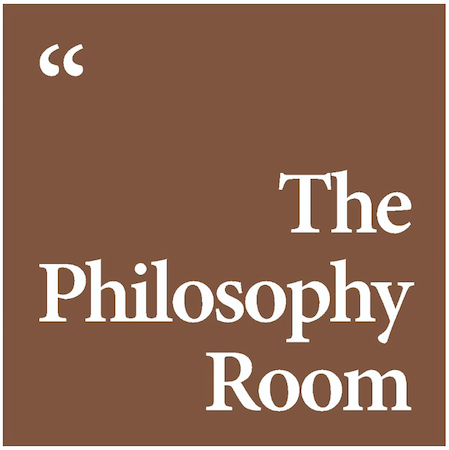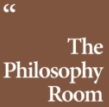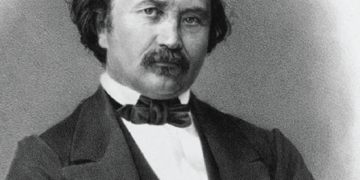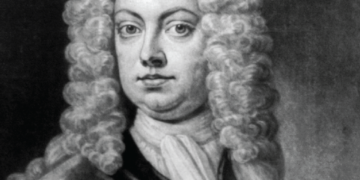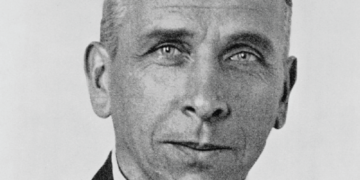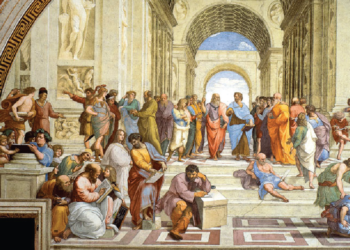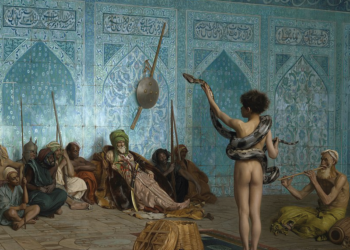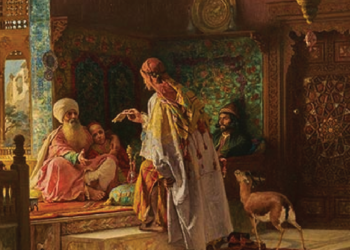Friedrich Engels
1) His Biography
Friedrich Engels, born on November 28, 1820, in Barmen, Prussia (now part of Wuppertal, Germany), played a pivotal role in shaping the socio-political landscape of the 19th century through his revolutionary ideas and collaboration with Karl Marx. Engels was born into a wealthy industrialist family, and his early experiences in the industrial heartland of England profoundly influenced his later works. His father, a textile manufacturer, initially intended for him to follow in the family business, but Engels displayed an early inclination towards radical ideas and a keen interest in social issues.
Engels’ journey into radical thought began during his time in Manchester, where he worked at his father’s factory. Witnessing the harsh working conditions and exploitation of the industrial proletariat fueled his commitment to understanding and challenging the prevailing economic and social structures. His seminal work, “The Condition of the Working Class in England,” published in 1845, provided a scathing critique of the industrial capitalist system and laid the groundwork for his future collaboration with Marx.
Engels’ partnership with Karl Marx, forged in the intellectual crucible of mid-19th century Europe, marked a turning point in both their lives. The two thinkers collaborated closely, co-authoring iconic works such as “The Communist Manifesto” in 1848 and “Das Kapital.” Engels’ intellectual contributions were crucial to the development and dissemination of Marxist theory, and he played an integral role in translating their shared ideas into a coherent and influential ideology.
Beyond his intellectual pursuits, Engels was actively involved in revolutionary movements. He participated in the uprisings of 1848 and dedicated his life to advocating for the working class. Engels’ commitment to the cause extended to financial support for Marx and his family, showcasing his unwavering dedication to the principles they espoused. His role in the International Workingmen’s Association (First International) further solidified his influence in the global workers’ movement.
Engels’ personal life also bore the marks of his revolutionary spirit. He formed a close and enduring relationship with Mary Burns, a working-class Irish woman, challenging the societal norms of his time. Their partnership exemplified Engels’ commitment to living out the ideals he championed in his writings, transcending the class boundaries of Victorian society.
The latter part of Engels’ life was marked by his efforts to disseminate and defend Marxist theory. Following Marx’s death in 1883, Engels dedicated himself to editing and completing “Das Kapital” and preserving Marx’s legacy. Engels passed away on August 5, 1895, in London. His contributions to Marxist thought and his tireless commitment to social justice left an indelible mark on the course of history, influencing subsequent generations of thinkers and activists in their quest for a more equitable and just society.
2) Main Works
The Condition of the Working Class in England (1845):
Engels’ groundbreaking work, “The Condition of the Working Class in England,” was a meticulous examination of the social and economic effects of industrialization. Drawing on his experiences in Manchester, Engels highlighted the deplorable living conditions and exploitation faced by the working class. This seminal piece laid the foundation for his later collaboration with Karl Marx and remains a key text in understanding the early critiques of industrial capitalism.
The Communist Manifesto (1848):
Co-authored with Karl Marx, “The Communist Manifesto” is arguably one of the most influential political pamphlets in history. Engels and Marx succinctly presented their vision of a classless society, advocating for the overthrow of the bourgeoisie by the proletariat. The manifesto encapsulates the core tenets of communism, emphasizing historical materialism and the inevitability of proletarian revolution.
The Condition of the Working Class in England in 1844:
Prior to the more comprehensive work of 1845, Engels published an earlier version titled “The Condition of the Working Class in England in 1844.” In this earlier piece, Engels delved into the immediate effects of industrialization on the working class, providing a snapshot of the struggles faced by workers during that specific year. It serves as a precursor to his more in-depth analysis in the subsequent edition.
The Peasant War in Germany (1850):
In “The Peasant War in Germany,” Engels examined the German Peasants’ War of 1524-1525. This historical analysis explored the dynamics of class struggle in a different context, shedding light on a pivotal moment in European history. Engels used the peasants’ struggle as a lens to discuss broader issues of social change and revolution.
Anti-Dühring 1878:
Written as a response to the philosopher Eugen Dühring, “Anti-Dühring” served as a comprehensive exposition of Marxist theory. Engels systematically addressed and critiqued Dühring’s ideas while clarifying and expanding on key Marxist concepts. This work is valued not only for its polemical engagement but also for its role in consolidating and refining Marxist thought.
Dialectics of Nature (unfinished, published posthumously in 1925):
Engels’ “Dialectics of Nature” is a posthumously published collection of notes and fragments exploring the application of dialectical materialism to the natural sciences. While incomplete and occasionally speculative, this work offers insights into Engels’ attempt to extend Marxist philosophy to the realm of science, connecting historical materialism with the study of nature.
3) Main Themes
Historical Materialism:
Engels’ profound engagement with historical materialism stands as a cornerstone of his intellectual legacy. This theme revolves around the idea that historical development is fundamentally shaped by the material conditions and economic structures of society. Engels, building on the foundations laid by Marx, argued that the mode of production forms the basis for social, political, and cultural institutions. His contribution lies in articulating the dialectical relationship between the economic base and the superstructure, asserting that changes in material conditions drive historical evolution.
Engels delved into historical materialism in “The German Ideology” and “Anti-Dühring.” In the former, he, along with Marx, contended that consciousness is determined by social being, challenging idealist philosophies that prioritized ideas over material conditions. Engels expanded on this in “Anti-Dühring,” emphasising the role of class struggle as the motor force of historical change. His exploration of historical materialism distinguished him from contemporary philosophers, showcasing a departure from idealism and a move towards a more scientific understanding of historical processes.
Comparatively, Engels’ insights were aligned with Marx’s, yet he also engaged with other thinkers such as Ludwig Feuerbach. Engels criticised Feuerbach’s abstract materialism, arguing that historical materialism provided a more comprehensive understanding of societal development by grounding it in concrete economic relations.
Class Struggle and Revolution:
Another central theme in Engels’ work is the concept of class struggle as a driving force behind historical change and the inevitability of proletarian revolution. In “The Communist Manifesto,” Engels, alongside Marx, articulated the idea that history is a history of class struggles, culminating in the revolutionary overthrow of the bourgeoisie by the proletariat. Engels expanded on this theme in various works, providing nuanced analyses of specific historical instances.
Engels’ examination of the German Peasants’ War in “The Peasant War in Germany” exemplifies his application of the class struggle paradigm to historical events. Here, he explored how the peasantry, driven by economic and social grievances, engaged in a struggle against feudal oppression. Engels’ contribution lies in integrating historical materialism with a detailed analysis of specific historical moments, demonstrating the concrete manifestation of class conflicts.
When compared with other thinkers, Engels’ emphasis on the inevitability of proletarian revolution differentiates him from reformist socialists of his time. While acknowledging the importance of social reforms, Engels maintained that true liberation could only be achieved through a radical transformation of the existing social order, setting him apart from thinkers advocating gradual change.
Dialectical Materialism:
Engels made significant contributions to the development of dialectical materialism, a philosophical framework that synthesises dialectics and materialism. In “Dialectics of Nature,” Engels applied dialectical materialism to the natural sciences, arguing that the laws of dialectics were not confined to human society but were inherent in the material world.
Engels’ original contribution in this theme lies in extending dialectical materialism beyond human history to encompass the entire universe. He argued that nature, like human society, follows dialectical laws of development. Engels drew parallels between the materialist understanding of nature and the Marxist analysis of history, positing that both are governed by internal contradictions and motion.
In comparison to other philosophers, Engels’ approach to dialectics was influenced by Georg Wilhelm Friedrich Hegel, but he diverged by grounding it in materialism rather than idealism. Engels’ dialectical materialism also differed from positivist perspectives, providing a dynamic and relational understanding of reality that acknowledged contradictions as inherent to the process of development.Alienation and Exploitation:
Engels’ exploration of alienation and exploitation contributes to his broader critique of capitalism. Drawing on the works of Karl Marx, Engels developed the theme of alienation by examining how capitalist relations estrange individuals from the products of their labor, the production process, and ultimately from themselves. In “The Condition of the Working Class in England,” Engels vividly depicted the dehumanizing effects of industrial capitalism on the working class, emphasising how labourers were reduced to mere commodities in the production process.
Engels’ original contribution lies in his synthesis of economic analysis and social critique. He contended that alienation was not merely a psychological or individual experience but a structural consequence of capitalist production. Engels extended the concept beyond the realm of philosophy, grounding it in the material conditions of the working class, thus providing a more concrete and tangible dimension to the theory.
Engels’ discussion of exploitation, particularly in “Das Kapital,” complemented the theme of alienation. He, alongside Marx, elucidated how the capitalist system inherently exploits the labour of the proletariat for profit. Engels’ focus on the objective reality of exploitation, as opposed to moralistic arguments, added depth to the Marxist understanding of the dynamics between labour and capital.
Comparatively, Engels’ exploration of alienation and exploitation shared commonalities with Marx’s ideas, demonstrating their collaborative intellectual enterprise. However, Engels’ emphasis on the social and economic implications of alienation and exploitation distinguished his contributions within the broader Marxist framework.
Role of Ideology and Ideological State Apparatuses:
Engels made significant contributions to the Marxist analysis of ideology and its role in sustaining class structures. In “The German Ideology,” Engels, along with Marx, critiqued prevailing philosophical and ideological discourses, arguing that ideas were shaped by the material conditions of society. Engels extended this analysis in “Anti-Dühring,” where he discussed the role of ideology in perpetuating the interests of the ruling class.
Engels’ original contribution to this theme lies in his examination of the state as an ideological apparatus. In “The Origin of the Family, Private Property and the State,” Engels explored how the state emerged as a tool for class domination, with its legal and ideological structures serving the interests of the ruling class. Engels’ application of historical materialism to the state and ideology provided a foundation for later Marxist analyses of the state apparatus.
Engels’ views on ideology were also influenced by his engagement with other thinkers. Notably, his critique of Max Stirner’s individualist anarchism in “The German Ideology” showcased Engels’ commitment to a materialist understanding of ideology, rejecting idealist and abstract notions in favour of a socio-economic analysis.
4) His Relationship with Marx
Friedrich Engels’ relationship with Karl Marx was a pivotal and enduring partnership that profoundly influenced the development of Marxist theory and its impact on revolutionary movements. Engels first encountered Marx in the early 1840s in Paris, and their collaboration quickly evolved into a deep intellectual and personal bond. Their relationship was characterized by mutual respect, complementary skills, and a shared commitment to advancing the cause of the working class.
Engels and Marx collaborated on several key works, the most notable being “The Communist Manifesto” (1848) and “Das Kapital.” In “The Communist Manifesto,” they laid out the principles of communism and called for the working class to rise against the bourgeoisie. Engels’ eloquent and passionate prose, combined with Marx’s theoretical insights, made the manifesto a powerful call to action. This collaboration symbolized their shared vision for a revolutionary transformation of society.
Engels’ role in supporting Marx extended beyond intellectual collaboration. Financially supported by his family’s industrial wealth, Engels provided crucial financial assistance to Marx, who faced persistent economic struggles. This financial backing allowed Marx the time and resources to dedicate himself fully to intellectual pursuits. Engels’ commitment to the cause of socialism was demonstrated not only through his writing but also through his practical support, illustrating a rare fusion of theory and practice.
Their relationship also involved a rich exchange of ideas and debates. Engels and Marx challenged each other, contributing to the refinement of their theories. Engels, for instance, developed “Anti-Dühring” in response to the ideas of Eugen Dühring, but this work also served to clarify and consolidate aspects of Marxist theory. This intellectual synergy highlights the dynamic nature of their collaboration and the constant evolution of Marxist thought.
Engels continued his collaboration with Marx until Marx’s death in 1883. After Marx’s passing, Engels took on the responsibility of editing and completing the second and third volumes of “Das Kapital,” ensuring that Marx’s magnum opus would see the light of day. Engels’ dedication to preserving and disseminating Marx’s ideas solidified his role as a torchbearer of Marxist thought.
Their personal relationship was marked by a deep friendship, transcending the purely intellectual. Engels’ lifelong partnership with Mary Burns, an Irish working-class woman, also challenged societal norms of the time. This unconventional aspect of Engels’ personal life reflected a commitment to living out the principles of social equality that he and Marx advocated in their works.
5) His Legacy
Friedrich Engels left an indelible legacy that extends far beyond his lifetime, influencing both intellectual discourse and political movements. His contributions to Marxist theory and his steadfast dedication to the cause of the working class have left a lasting impact on various fields, shaping the course of 19th and 20th-century history.
One of Engels’ primary contributions lies in the development and dissemination of Marxist theory. His collaboration with Karl Marx produced seminal works such as “The Communist Manifesto” and “Das Kapital,” which became foundational texts for socialist and communist movements worldwide. Engels played a key role in systematizing and popularizing Marxist ideas, ensuring their accessibility to a broader audience. The theoretical framework he helped construct continues to be a powerful tool for analyzing and critiquing capitalist societies.
Engels’ commitment to historical materialism, class struggle, and dialectical materialism added depth to Marxist thought. His exploration of historical materialism, in particular, provided a lens through which to understand the evolution of societies, emphasizing the centrality of economic structures in shaping history. Engels’ works not only contributed to the theoretical foundations of Marxism but also provided practical insights for revolutionary movements seeking to transform social and economic systems.
Beyond his intellectual contributions, Engels played a crucial role in nurturing and supporting socialist and workers’ movements. His involvement in the International Workingmen’s Association (First International) helped unite various leftist factions under a common banner, laying the groundwork for international solidarity among workers. Engels’ activism extended to his financial support for Marx and his family, exemplifying a personal commitment to the material conditions of the working class.
Engels’ legacy is also evident in the enduring impact of his works on subsequent generations of thinkers, activists, and revolutionaries. Marxist movements across the globe have drawn inspiration from his ideas, adapting and applying them to diverse political and cultural contexts. Engels’ writings continue to be studied and debated in academic circles, ensuring that his intellectual contributions remain relevant and influential in contemporary discussions on capitalism, socialism, and social justice.
Moreover, Engels’ legacy extends into the realms of sociology, political science, and economics. Scholars continue to engage with his ideas on topics such as alienation, exploitation, and the role of the state, contributing to ongoing debates about the nature of society and possibilities for social transformation.
In addition to his intellectual and political contributions, Engels’ personal life and unconventional relationships challenge societal norms, reflecting a commitment to living out the principles he advocated. His partnership with Mary Burns and his rejection of Victorian social conventions serve as a testament to the intersection of personal and political convictions in shaping a transformative legacy.
